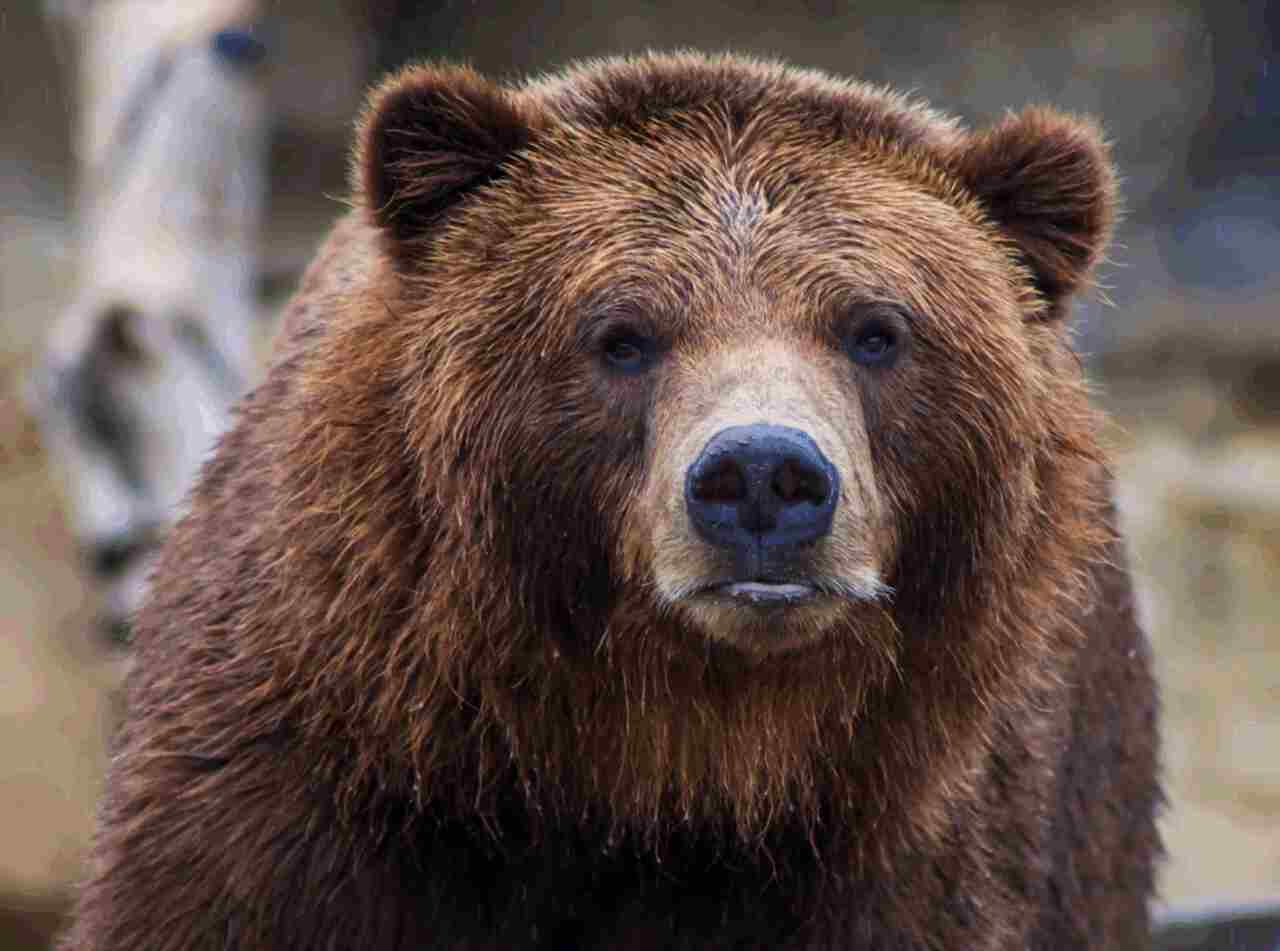There are stories that stay with you long after you read them, the kind that make you stop, shake your head, and whisper, “How could anyone do this?” The life of Caesar, a brown bear once trapped in China’s brutal bile farming industry, is one of those stories. It is both heartbreaking and inspiring, a story of cruelty and resilience, of suffering and second chances, and ultimately a reminder that we still have so much work to do.

For the first years of her life, Caesar lived in what can only be described as a nightmare. Instead of roaming forests, climbing trees, or digging in the earth, she was locked inside a tiny cage, her body strapped into a metal vest that resembled something from medieval times. This wasn’t some odd piece of equipment—it was a device designed to trap her body, pierce her skin, and ensure that bile could be extracted from her gallbladder day after day. That bile was sold for use in traditional medicine. Imagine a powerful, intelligent animal reduced to a prisoner in her own body, forced to endure pain with no end in sight. Caesar bore scars, open wounds, and a spirit so weighed down that it’s a wonder she survived as long as she did.
And yet, in 2004, her life changed. Thanks to the tireless work of Animals Asia, Caesar was rescued from that hell. She was injured, mistrustful, and traumatized, but she was finally free. The dreadful vest was removed, and for the first time she felt sunlight on her skin without iron bars pressing against her. Slowly, with care and patience, Caesar began to heal. She transformed from a broken creature into a magnificent bear, her coat growing lush and beautiful, her spirit shining brighter with each passing year.
Those who cared for her say that Caesar embraced her second chance at life with pure joy. She loved digging in the earth, a simple pleasure denied to her for so long. She loved swimming and would wade into the water with a kind of quiet pride, finally moving freely as nature intended. And she adored basking in the sunshine, especially on cool autumn days when the air was crisp and the world felt calm. Watching her shake herself dry after a swim was breathtaking—she was powerful, radiant, and free.
Caesar became more than just a survivor; she became a symbol. Named after the Roman general, she carried herself with strength and dignity, reminding everyone who saw her what resilience looks like. Weighing over 600 pounds, she was an impressive figure not just because of her size but because of her spirit. Visitors to the Animals Asia sanctuary often spoke about the light in her eyes, the way she seemed to reclaim every ounce of freedom she had been denied for so long.
But Caesar’s story, like so many rescued animals, came with a shadow. The years of abuse left permanent damage. In time, she developed an aggressive tumor, the cruel reminder of the constant bile extraction that had scarred her body from the inside. Despite the best medical care and the love of her caregivers, the illness was too strong. After 13 years of freedom, Caesar passed away, leaving those who had fought so hard for her devastated.
Her death was more than the loss of one beautiful animal—it was a wake-up call. It reminded us that while Caesar was lucky enough to be rescued, thousands of bears remain trapped in conditions just as cruel. Estimates suggest that as many as 10,000 bears are still confined on bile farms in China, with more in Vietnam. While some of the worst devices, like the metal vests, are now banned, the suffering continues. And for every bear that is rescued, so many others remain in cages, enduring pain and misery with no hope of escape.
For those of us who love animals—and I know many women over 50 who feel deeply connected to stories of resilience and justice—Caesar’s life carries an important lesson. It reminds us that no act of compassion is too small. The group that saved Caesar couldn’t end the industry overnight, but for her, they changed everything. They gave her more than a decade of freedom, of dignity, of the simple joys she had been denied. They gave her back her life.
As we think about Caesar, we are called to remember that the fight for animals like her is not finished. Advocacy matters. Supporting organizations that work to end cruelty matters. Sharing these stories matters, because the more people know, the harder it becomes for such cruelty to hide in the shadows. Caesar’s life, and even her painful death, can serve as a rallying cry: we cannot turn away.
It’s easy to feel helpless when we hear about tragedies like this, but Caesar’s journey shows us that change is possible. She lived to swim, to dig, to bask in the sun. She got to feel love and safety. And though her scars never fully faded, she proved that healing is possible, even after the darkest suffering.
When I think of her now, I picture her lying in the grass under a cool autumn sky, eyes half-closed in peace, finally free. And I think of the thousands of others still waiting, still suffering, still hoping that someone will come for them too. Caesar’s story is not just about what she endured—it’s about what we must do. It’s a reminder to keep fighting, to keep caring, and to believe that every act of compassion makes a difference.
Because if saving even one bear means giving them a chance to live like Caesar did in her final years, then the fight is worth it. Always.





